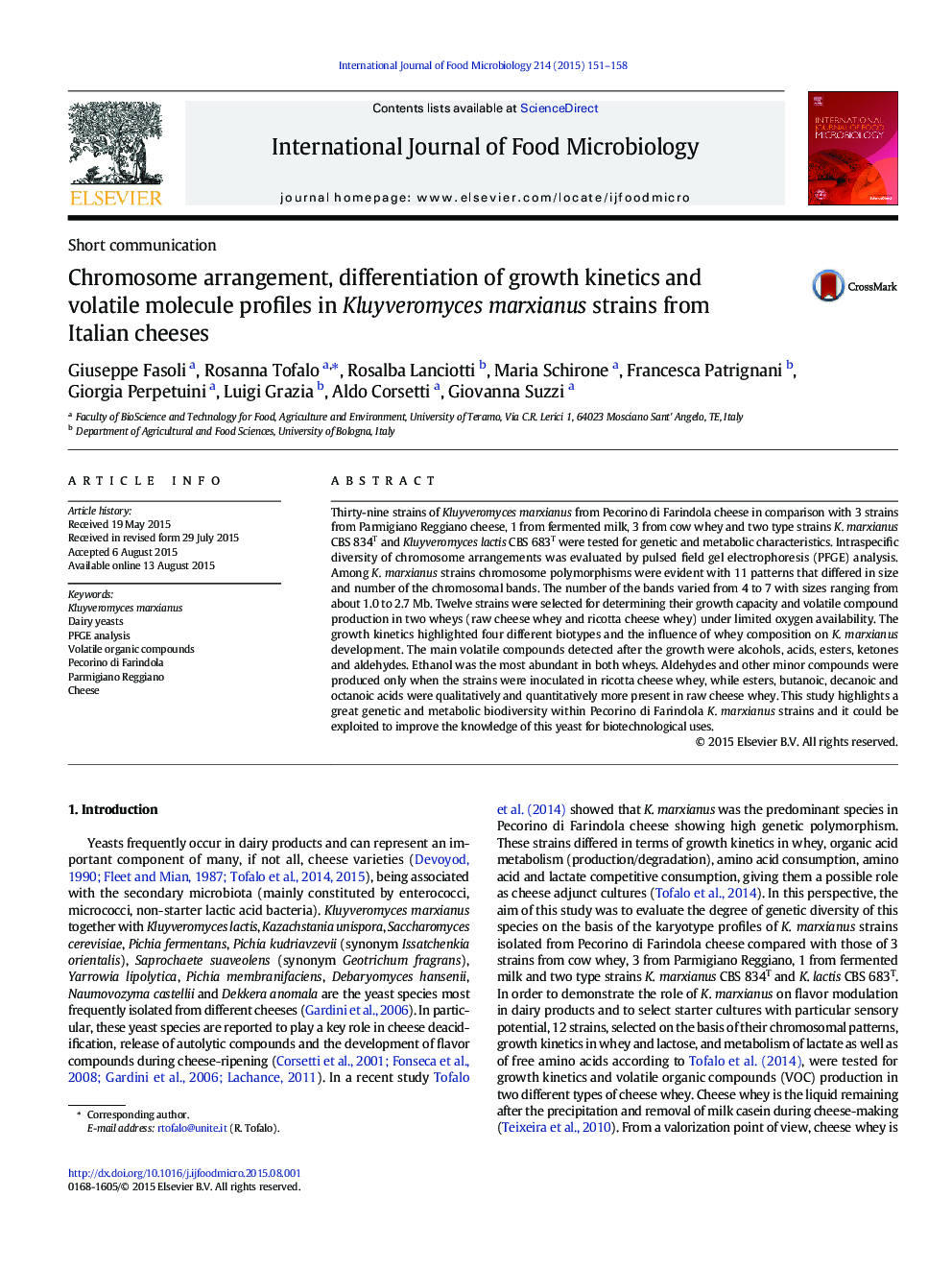| Article ID | Journal | Published Year | Pages | File Type |
|---|---|---|---|---|
| 4366478 | International Journal of Food Microbiology | 2015 | 8 Pages |
•Kluyveromyces marxianus role in dairy products flavor modulation•High degree of chromosomal arrangements within this species•Influence of different wheys on K. marxianus growth and metabolic profile
Thirty-nine strains of Kluyveromyces marxianus from Pecorino di Farindola cheese in comparison with 3 strains from Parmigiano Reggiano cheese, 1 from fermented milk, 3 from cow whey and two type strains K. marxianus CBS 834T and Kluyveromyces lactis CBS 683T were tested for genetic and metabolic characteristics. Intraspecific diversity of chromosome arrangements was evaluated by pulsed field gel electrophoresis (PFGE) analysis. Among K. marxianus strains chromosome polymorphisms were evident with 11 patterns that differed in size and number of the chromosomal bands. The number of the bands varied from 4 to 7 with sizes ranging from about 1.0 to 2.7 Mb. Twelve strains were selected for determining their growth capacity and volatile compound production in two wheys (raw cheese whey and ricotta cheese whey) under limited oxygen availability. The growth kinetics highlighted four different biotypes and the influence of whey composition on K. marxianus development. The main volatile compounds detected after the growth were alcohols, acids, esters, ketones and aldehydes. Ethanol was the most abundant in both wheys. Aldehydes and other minor compounds were produced only when the strains were inoculated in ricotta cheese whey, while esters, butanoic, decanoic and octanoic acids were qualitatively and quantitatively more present in raw cheese whey. This study highlights a great genetic and metabolic biodiversity within Pecorino di Farindola K. marxianus strains and it could be exploited to improve the knowledge of this yeast for biotechnological uses.
